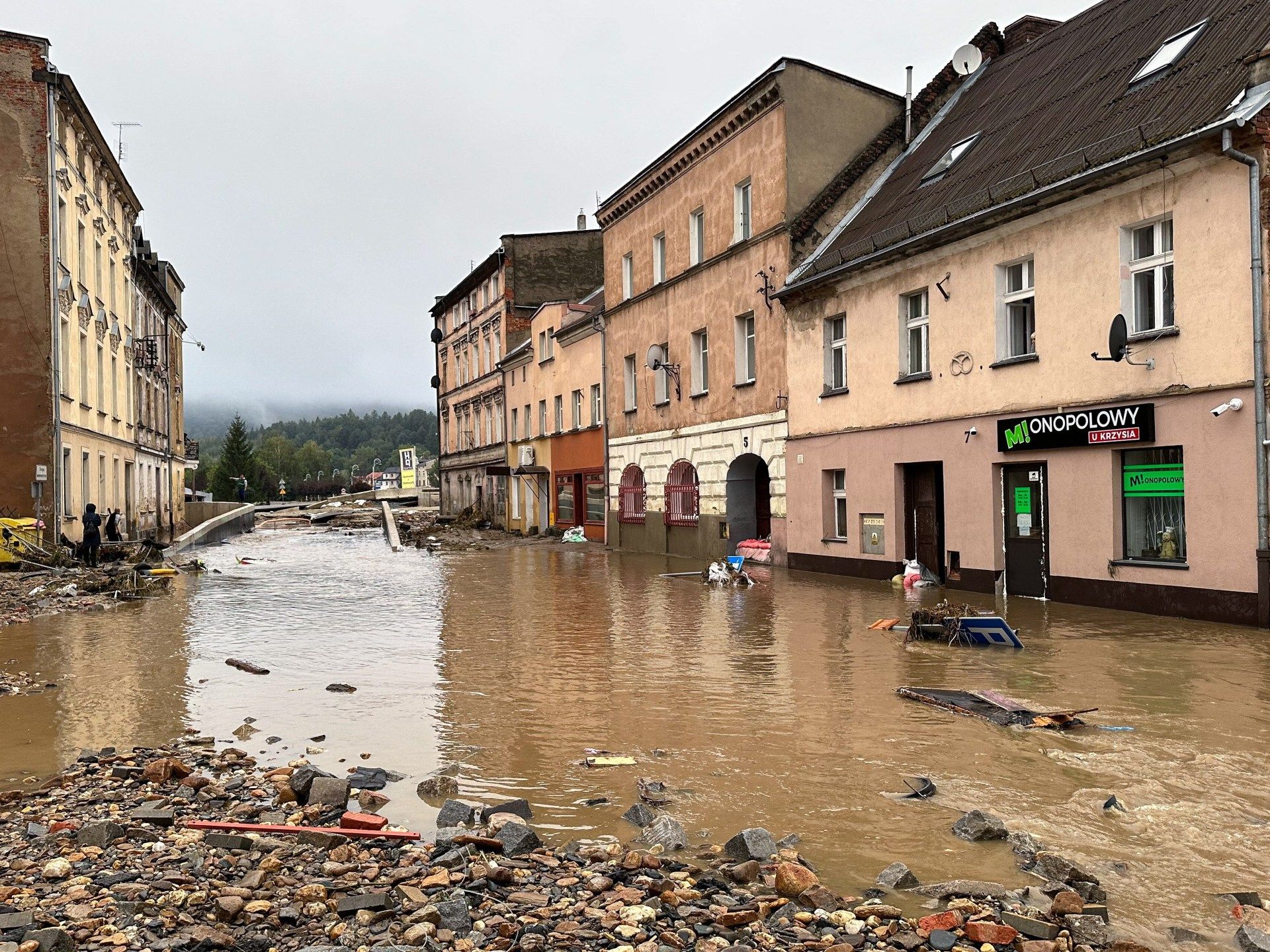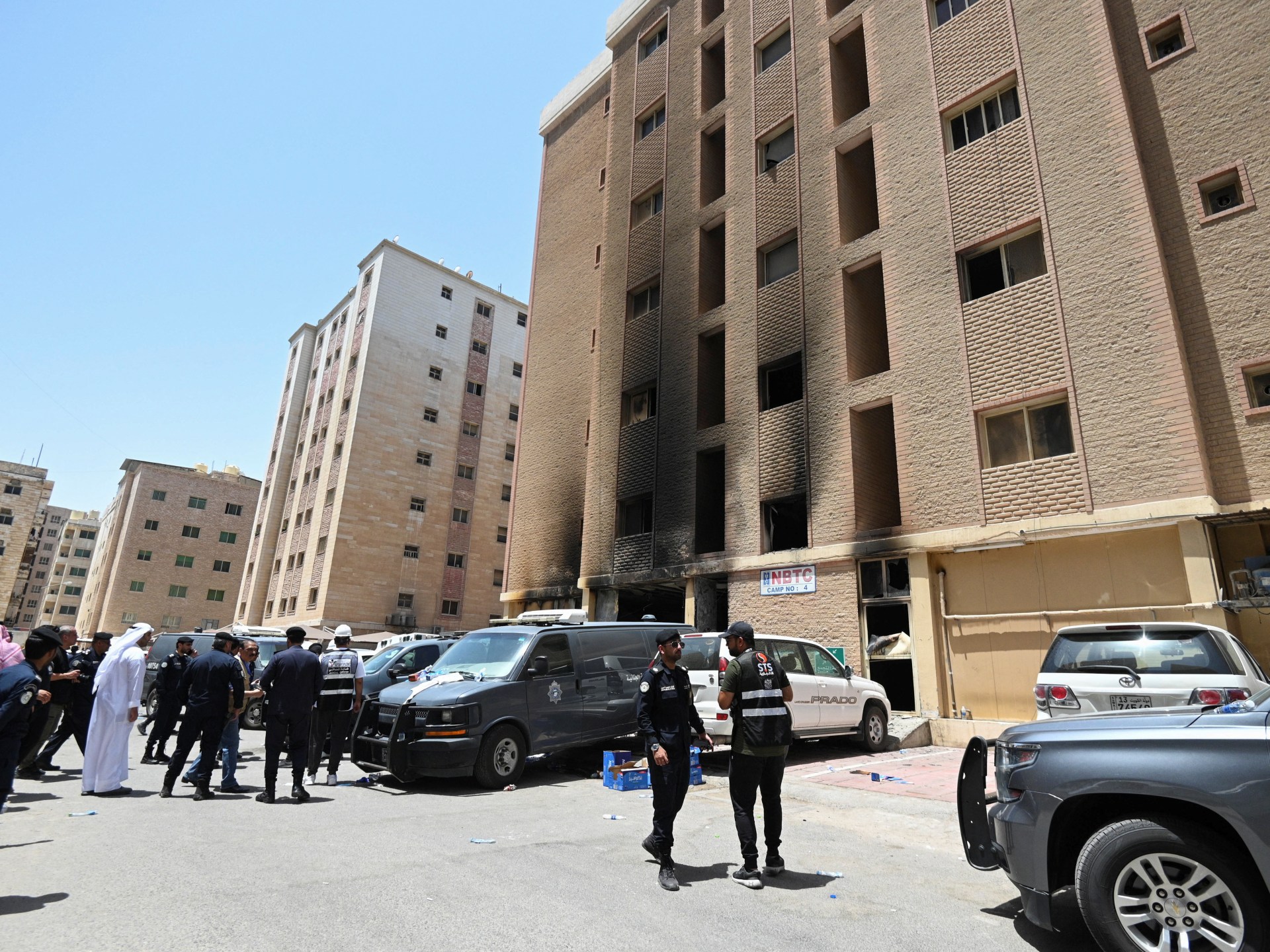At least 15 people have now died in flooding caused by Storm Boris in central and eastern Europe, as many countries brace for more torrential rain.
The flooding was the worst to hit Central Europe in at least two decades, authorities said Monday.
Border areas between the Czech Republic and Poland were particularly hard hit over the weekend, with rising water levels causing bridges to collapse and damage to cars and houses.
The death toll from flooding in southwestern Poland has risen to five after the body of a surgeon returning from hospital duty was found in the town of Nysa on Monday morning, firefighters said.
The bodies of two women and two men were previously found in the cities of Bielsko-Biala and Ladek-Zdroj, as well as in two villages.
Police in the Czech Republic said a woman had drowned in the north-east of the country, which has seen record rainfall since Thursday. Seven other people were missing on Monday, up from four the day before.
Meanwhile, in Romania, floods killed at least six people over the weekend and in Austria, a firefighter died on Sunday. In the state of Lower Austria, which surrounds Vienna, two men aged 70 and 80 were also found drowned in their homes, a police spokesman said on Monday.
Television footage on Monday showed streets in Poland's Klodzko region strewn with debris and mud. In the Polish town of Nysa, a hospital was evacuated and patients, including pregnant women and the elderly, were taken out on rafts. Many Polish cities, including Warsaw, have appealed for food donations for flood survivors.
Al Jazeera's Assed Baig reported from Klodzko that the situation in the town was devastating.
“When the floods came to this historic city, they caused havoc… people are trying to save what they can… people are asking for help. They want food, clothes and electricity,” he said.
He said people have been placing sandbags on streets and in front of their homes in preparation for more flooding.
“But it is difficult to prepare. When the first [flood] “The wave hit, it was very high and there was no warning,” Baig said. He said many feared “something worse could happen.”
Experts are warning of a threat of flooding in Opole, a city of about 130,000 people in Poland, where the Oder River has reached high levels and started to burst its banks in some places. Concerns have also been expressed northwest of the city, in the city of Wroclaw, home to about 640,000 people, where flooding was expected on Wednesday. The city suffered a disastrous flood in 1997 and the trauma is still fresh there.
Poland's government on Monday announced a state of natural disaster in the affected areas and said it had set aside 1 billion zlotys ($260 million) to help victims.
Polish Prime Minister Donald Tusk said he was in contact with leaders of other affected countries and would ask the European Union for financial help.
“As of today, anyone affected by flooding – and by this I mean flooding, building collapses, flooded garages, vehicle losses, flood-related losses – will be able to easily apply for funding,” he added.
Czech authorities have declared a state of emergency in two northeastern regions that suffered the worst flooding, including in the Jeseníky Mountains near the border with Poland.
Several towns and villages were submerged in the northeast of the country on Sunday and thousands of people had to be evacuated. Military helicopters joined rescue teams on boats to ferry people to safety.
In the Czech Republic, floodwaters spreading south-east of the country inundated the town of Litovel, while the Oder River inundated parts of the city of Ostrava at the confluence with the Opava River, forcing the evacuation of hundreds of people on Monday after a natural dam broke. Firefighters and others were working to fix the problem.
Authorities in Ostrava, the country's third-largest city, warned against travel to the city as most people had no hot water or heating.
In Austria, river and reservoir levels fell overnight as rainfall eased, but authorities have said they are preparing for a second wave as heavier rain is expected.
After affecting Austria, the Czech Republic, Poland and Romania, flooding could hit Slovakia and Hungary next as a result of a low pressure system from northern Italy that has been dumping record rainfall on the region since Thursday.












